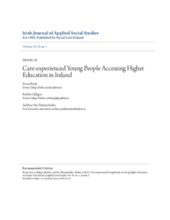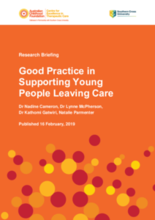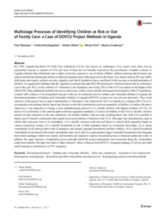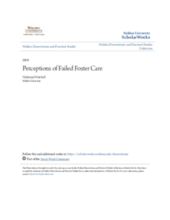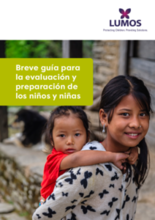Displaying 501 - 510 of 991
This brief paper focuses on the question of how care-experienced young people in Ireland fare in accessing opportunities in higher education.
This research summary provides an overview of what young people leaving residential care in Australia need and how those working in residential care can best help young people prepare for independence.
This open access paper documents the Deinstitutionalization of Orphans and Vulnerable Children in Uganda (DOVCU) project, articulating the logical steps that were undertaken to identify districts, Child Care Institutions (CCIs), Remand Homes (RH), sub-counties, and parishes to work with. It also seeks to categorically outline the inclusive process that was used to examine push and pull factors of family-child separation, identify households at risk of family-child separation “prevention households,” identify reunifying children and trace their households “reintegrating households,” and assess and classify in quantified terms the level of vulnerability in both at risk and separated households.
This study focuses on life satisfaction among care leavers four years after leaving care in Israel.
The purpose of this action research study was to investigate social workers’ perceptions of the problems that prevent successful family reunifications after foster care. The study explored social workers’ perceptions of barriers that prevent family reunifications in central Mississippi, USA.
This report turns the lens on young people who age out of foster care and explores four areas — education, early parenthood, homelessness and incarceration — where they fare worse than their general population peers in the US.
The Transitioning to Family Care for Children Online Training provides an overview of the key concepts and steps that are important to a successful transition process.
This article examines the aftercare experiences of young people who have recently left a residential care institution in Lagos State, Nigeria.
The purpose of this scoping review is to assess the effectiveness of independent living programs on educational outcomes among youths aging out of the foster care system in United States.
El presente folleto incluye información para preparar a los niños y niñas para que regresen a sus hogares o ingresen a servicios de atención basados en una familia sustituta.

